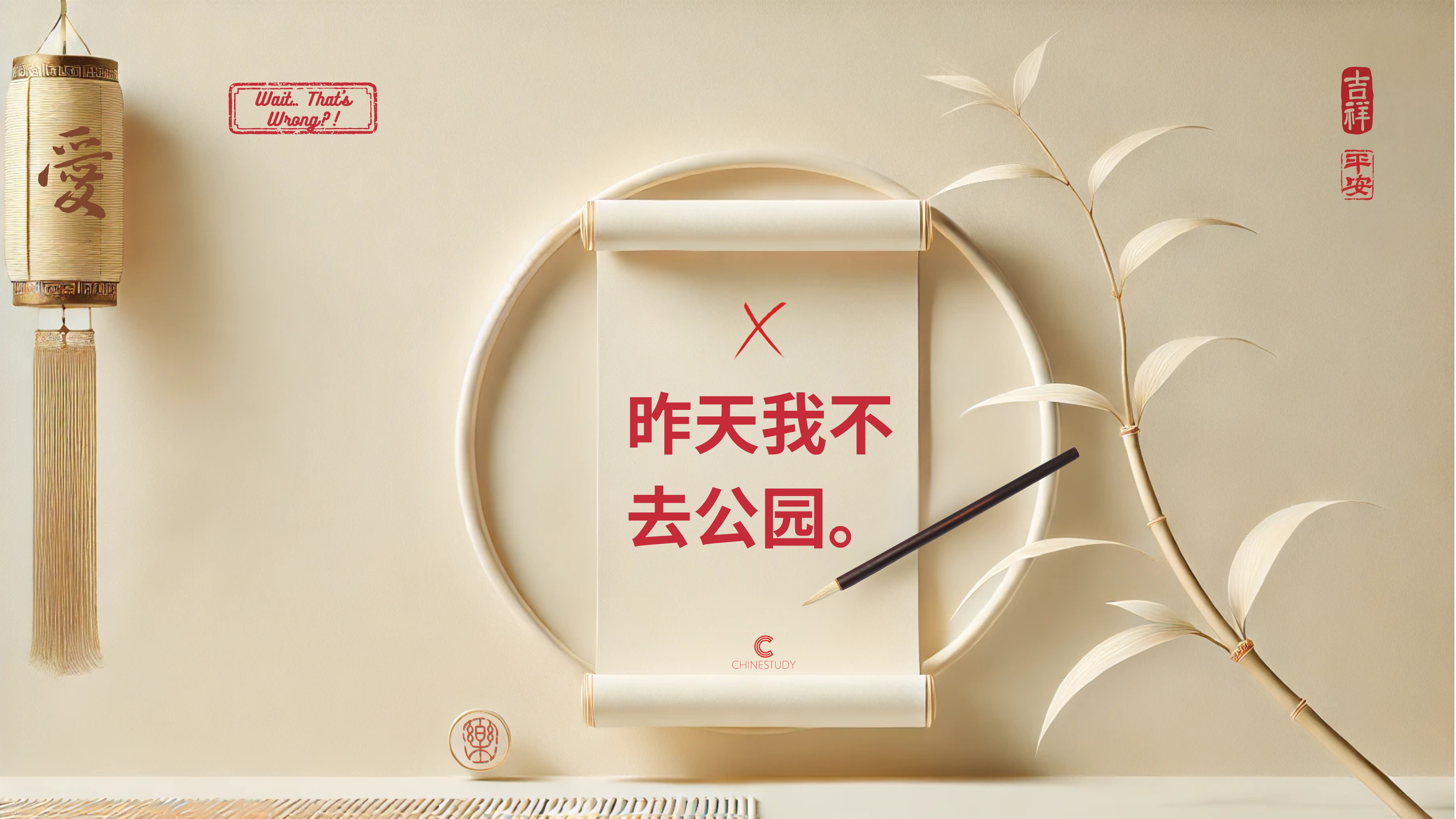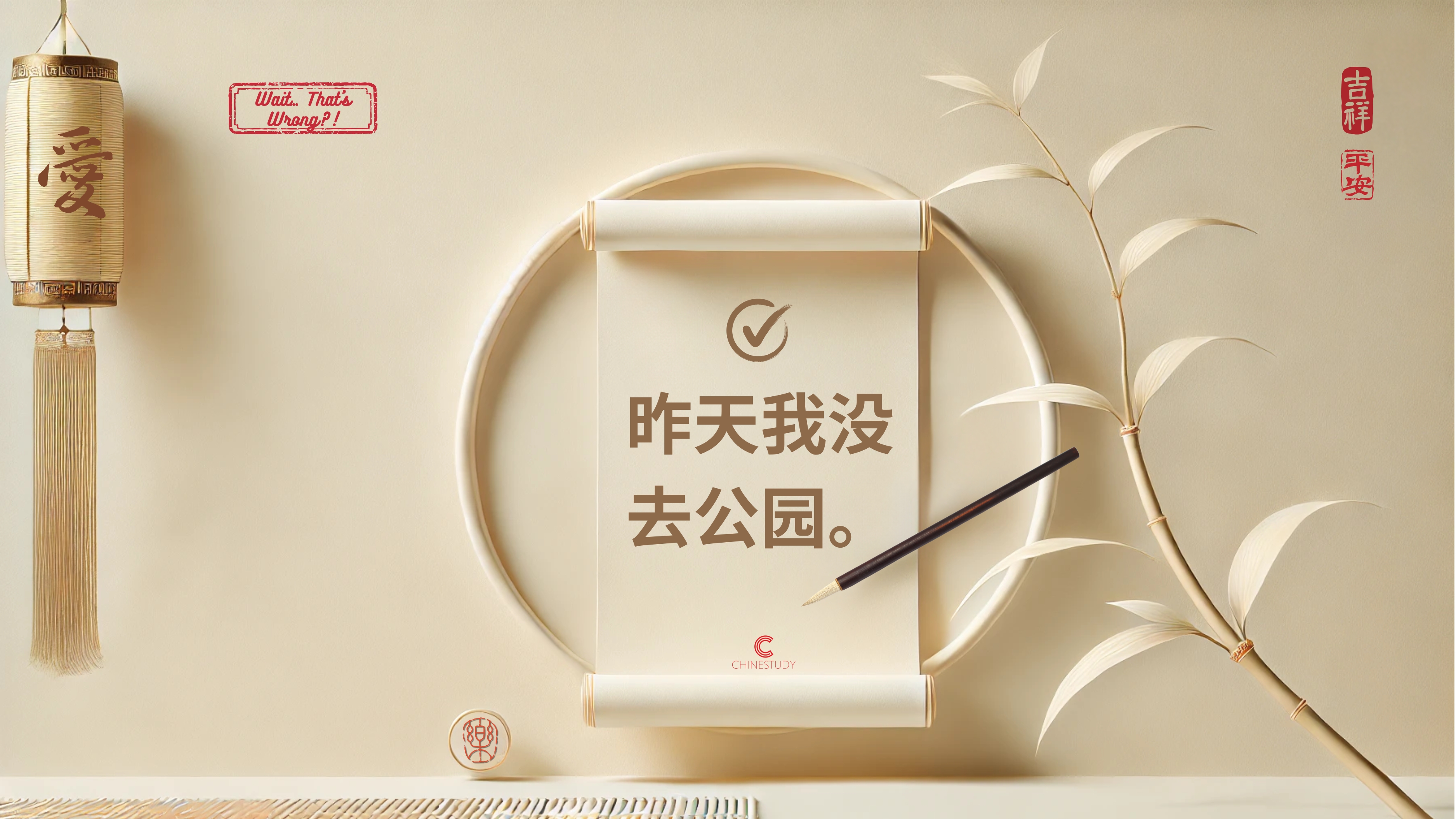|
English |
Wrong |
Correct |
|---|---|---|
|
I didn’t eat breakfast. |
❌ 我不吃早饭。Wǒ bù chī zǎo fàn。 |
✅ 我没吃早饭。Wǒ méi chī zǎo fàn。 |
|
He didn’t come. |
❌ 他不来。Tā bù lái。 |
✅ 他没来。Tā méi lái。 |
|
We didn’t watch a movie. |
❌ 我们不看电影。Wǒ men bú kàn diàn yǐng。 |
✅ 我们没看电影。Wǒ men méi kàn diàn yǐng。 |
😅 昨天我不去公园。 Wait… That’s Wrong?!

Common Mistake:
❌ 昨天我不去公园。
Pinyin: Zuótiān wǒ bú qù gōngyuán。
🧐 What’s wrong?
- “昨天我不去公园” sounds like it makes sense — you want to say “I didn’t go to the park yesterday.”
- But using 不 here is wrong because it doesn’t work with past tense.
❌ Wrong sentence:
昨天我不去公园。
Zuótiān wǒ bú qù gōngyuán。
- I not go to the park yesterday.
✅ Correct sentence:

- 昨天我没去公园。
- Zuótiān wǒ méi qù gōngyuán。
- I didn’t go to the park yesterday.
📚 Why is it wrong?
In Chinese, 不 is used for actions that happen regularly or in the present/future.
But for things that happened in the past, we must use 没.
- 📝 不 = not doing something now/future or in general
- 📝 没 = didn’t do something (past tense)
✨ Try These!
💡 Tip
📌 If you are talking about something in the past, use 没 instead of 不.
🧠 Interactive Practice: Choose the Right Word!
Can you choose the correct word to complete each sentence?
1. 明天我___去学校。
A. 不
B. 没
✅ Correct answer: A. 不 (It’s a future action.)
2. 我昨天___吃早饭。
A. 不
B. 没
✅ Correct answer: B. 没 (It’s about the past.)
3. 我现在___想说话。
A. 不
B. 没
✅ Correct answer: A. 不 (It’s about now.)
4. 昨天他___去上班。
A. 不
B. 没
✅ Correct answer: B. 没 (It’s a past action.)
📝 Try making your own sentence using 没 for a past action!
🇨🇳 Cultural Insight: Why This Mistake Happens
Many learners mix up 不 and 没 because in English, we just say “not.” But in Chinese, the choice depends on when the action happens.
In Chinese culture, being clear about time is very important when speaking. You often see time words like “昨天 zuótiān (yesterday), 现在 xiànzài (now), 明天 míngtiān (tomorrow)” at the beginning of the sentence. This helps listeners understand the context right away.
So, once you say “昨天,” you’ve already set a time in the past — and your verb needs to match! That’s why “没” is the natural choice after talking about something that already happened.
Thank you for subscribing!
Have a great day!